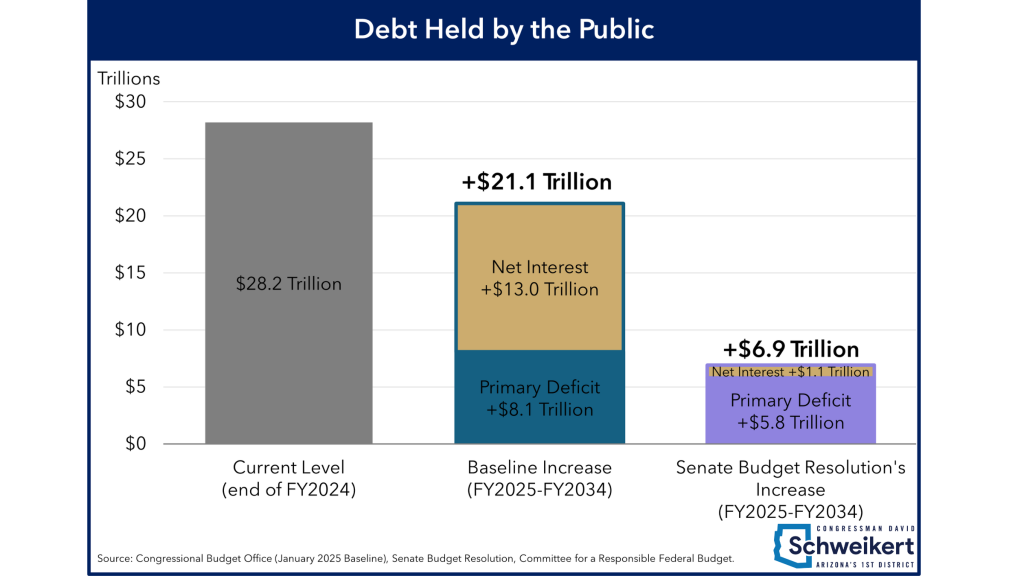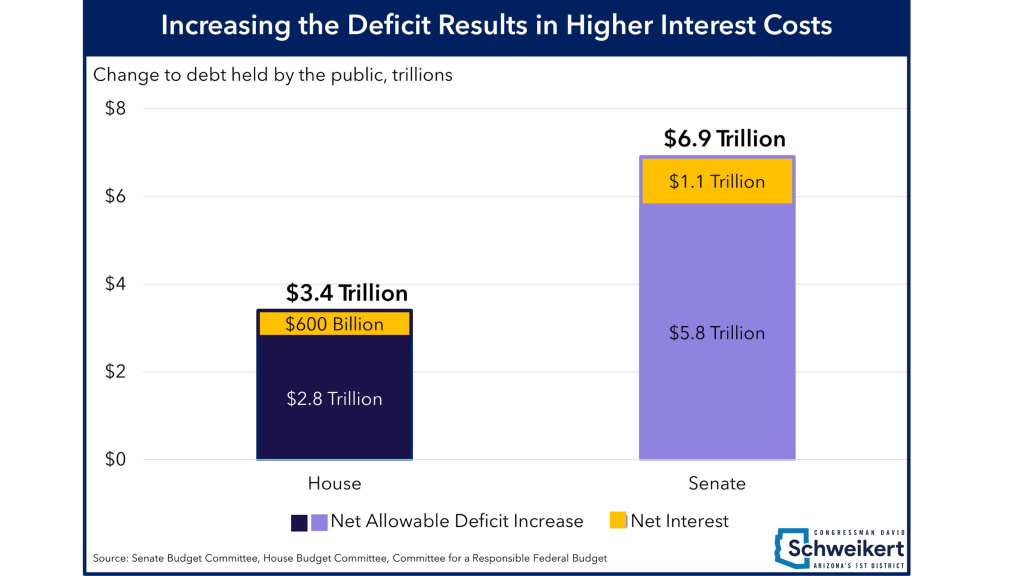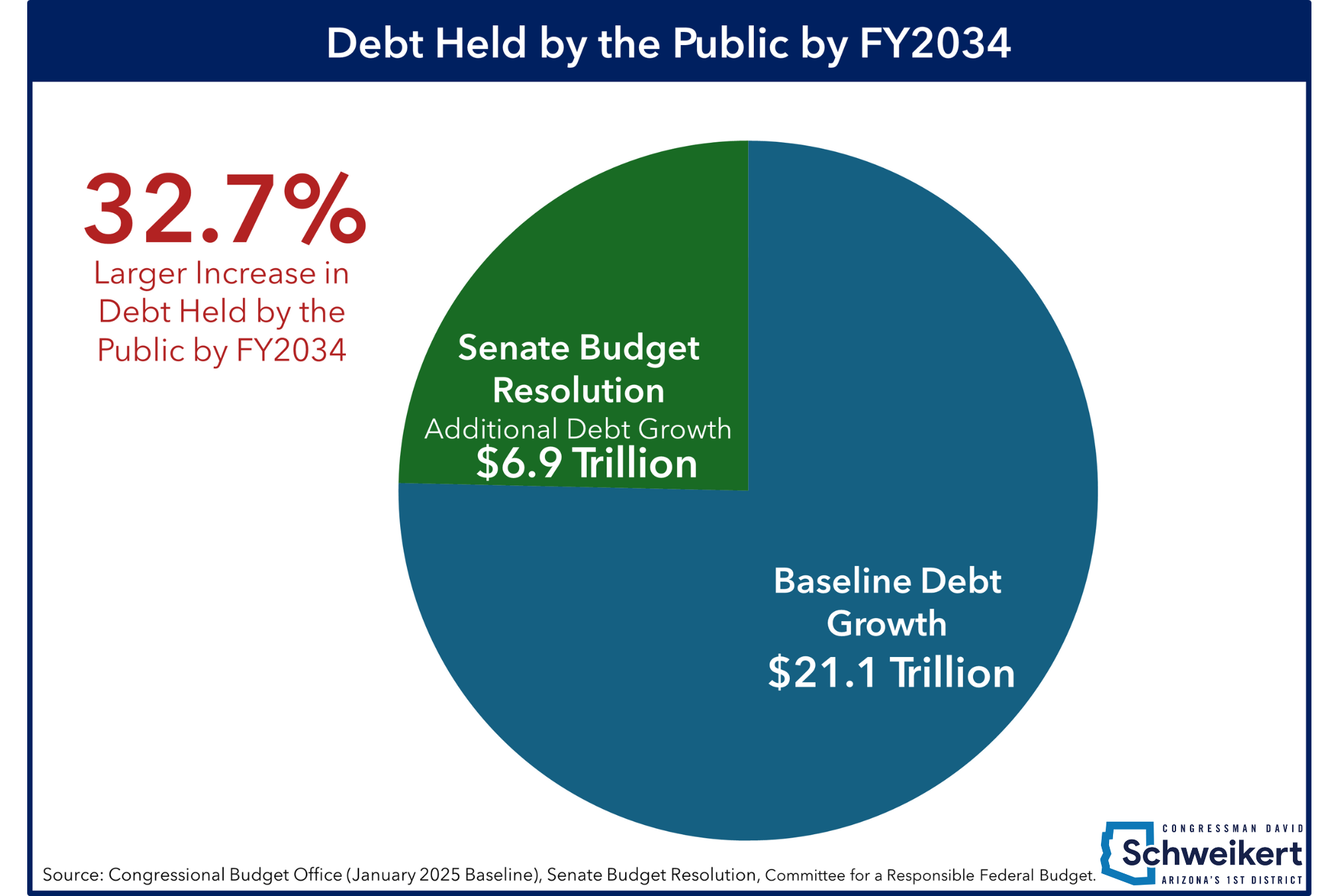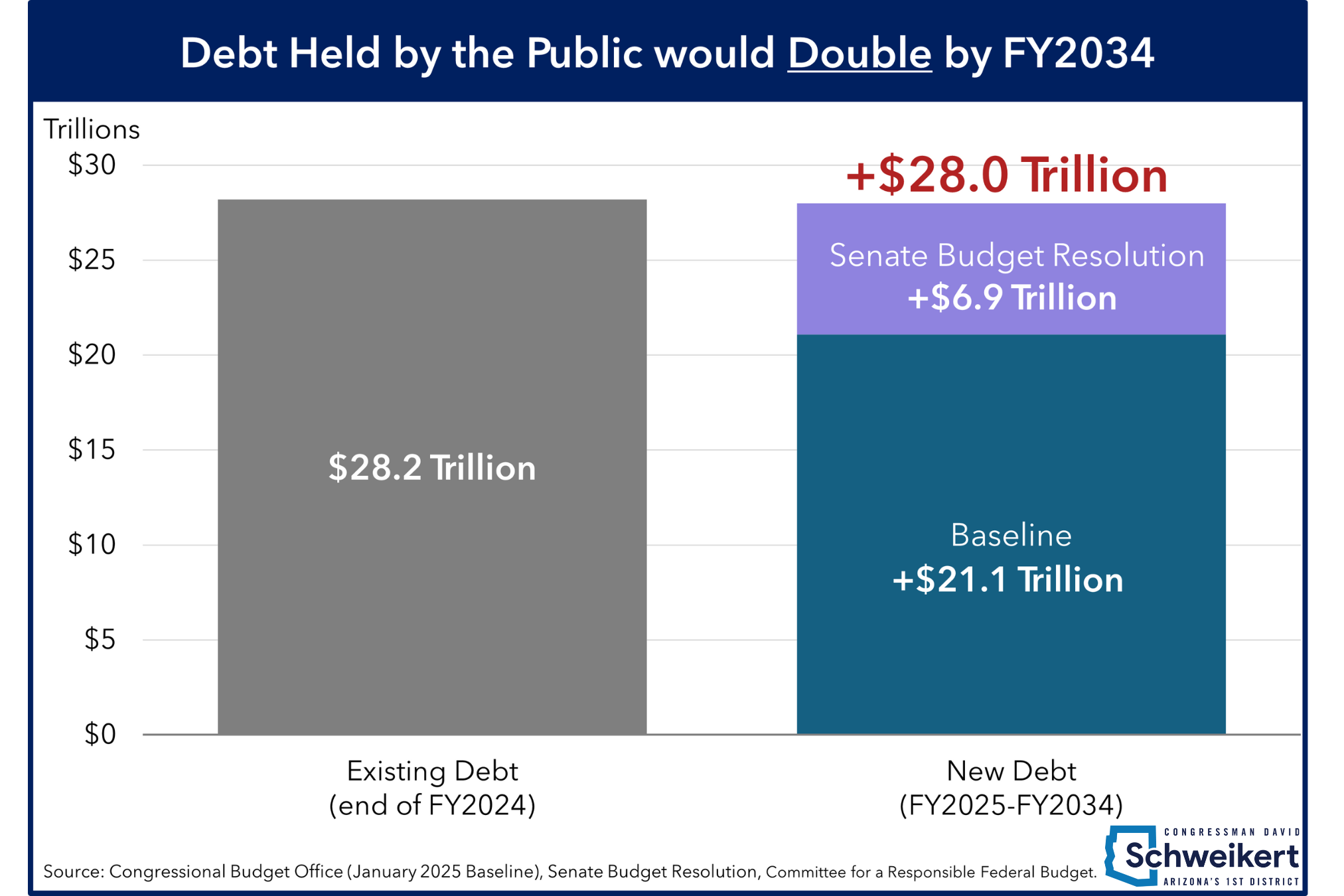WASHINGTON, D.C. — “With just $4 billion in cuts— equal to less than a single day’s worth of borrowing— the Senate budget resolution is more business as usual at a time when that’s exactly what we’re trying to avoid,” said Arizona Congressman David Schweikert in a statement responding to Saturday’s release of the Senate’s Budget Resolution.
During his weekly House Floor speech, Rep. Schweikert went even further by expressing his disappointment with his colleagues in the Senate’s willingness “to avoid doing what was difficult,” leaving the House to do the serious policy work. Ultimately, the Senate budget resolution functionally adds another $6.9 trillion in deficits— including $1.1 trillion dollars
of interest— but only allows $4 billion in spending reductions over a ten-year period. Click on the video to view the full speech or click on any of the following blue boxes to view other excerpts from the speech.
“So, this is what some of you hear a number of us fussing about — we can’t figure out what the Senate was thinking. Were they just in avoidance, saying, “We don’t want to tell anyone we’re going to try to do something,”? It shouldn’t even be that hard. Remember, [baseline is] $86 trillion in spending. The House was just trying to do $2 trillion, and I thought that $2 trillion was absolutely anemic— we should have covered all $4.5 trillion. One of the hardest votes I’ve made in my decade+ here was standing right there and swallowing, saying, “I’m going to vote for this, but I’m really unhappy because we are capable of doing more,” and if we don’t start to telegraph to the bond markets that we’re going to do something serious, at what moment do the bond markets say, “Screw these people— they’re just not serious. They’re consuming the world’s capital. Let’s charge them more.” Do you really think the United States, with our exorbitant privilege of having the world’s reserve currency — being the country that people want to come and do their business in, move to, put their capital in — do you think that’s our birthright? Remember, up until World War II, it was Great Britain that had the world’s reserve currency. We are squandering our place in the world. And people are running around saying, “Well, we need to push down the value of the dollar!” You have trillions and trillions of dollars around the world held by people — and you’re going to push down the value of their holdings? Just understand: every time someone says something like that, you can actually start to see the full faith in the United States start to taper away.”




Key Quote: “And you wonder why some of us are cranky when our colleagues down the hall basically give us crap to work with.“
“When we all got elected this last November, United States sovereign debt [held by the public] was around $28 trillion. When we finish this 10-year cycle, we’re going to add another $28 trillion if we do what the Senate sent us. What took us 240 years to build up, we’re going to double in the next ten budget years. Go team; that’s the morality of this place. “But it’s hard, David,” to explain to people that we need to modernize; we need to change the way we deliver services; we need to use technology. And some programs — we should just stop, because they’ve been outdated for decades. This is important here. This is all without any disaster aid, without the potential economic slowdown, and without a war. I mean, just using what are actually optimistic numbers over the next ten-year tax receipts — what we’re talking about doing right now, over the next ten years, is doubling what took us 240 years to build up in debt. Does anyone care about your retirement? Does anyone have kids? Think of this. It may be insane — and my wife’s my age — I have a nine-year-old daughter, and a functionally two-and-a-half-year-old little boy we’ve adopted. And yes, they’re brother and sister. When my little boy is functionally 24 or 25 years old, every tax in the United States — every single tax — would have to double just to maintain baseline services. That’s the morality here: we are raising kids who would be part of the first generation to be structurally poorer than their parents. Because when you borrow money — it is a tax. It just means you’re going to let someone else pay it, with interest. It’s not free money; It’s a tax.”
“Functionally, 32.7 percent of the next decade— what they gave us— is borrowing… additional borrowing. They basically decided, over the next decade, “Let’s add another third of debt!” What are we going to do? For those of us in the House, who give these beautiful speeches about how it’s immoral to do this to our kids and crush people’s future retirements… what are we going to do? Are we going to step up and say, “Look, Republicans have priorities. The White House has priorities. We just have to find ways to finance them.” Are we that terrified to tell the truth?“
Back to News
